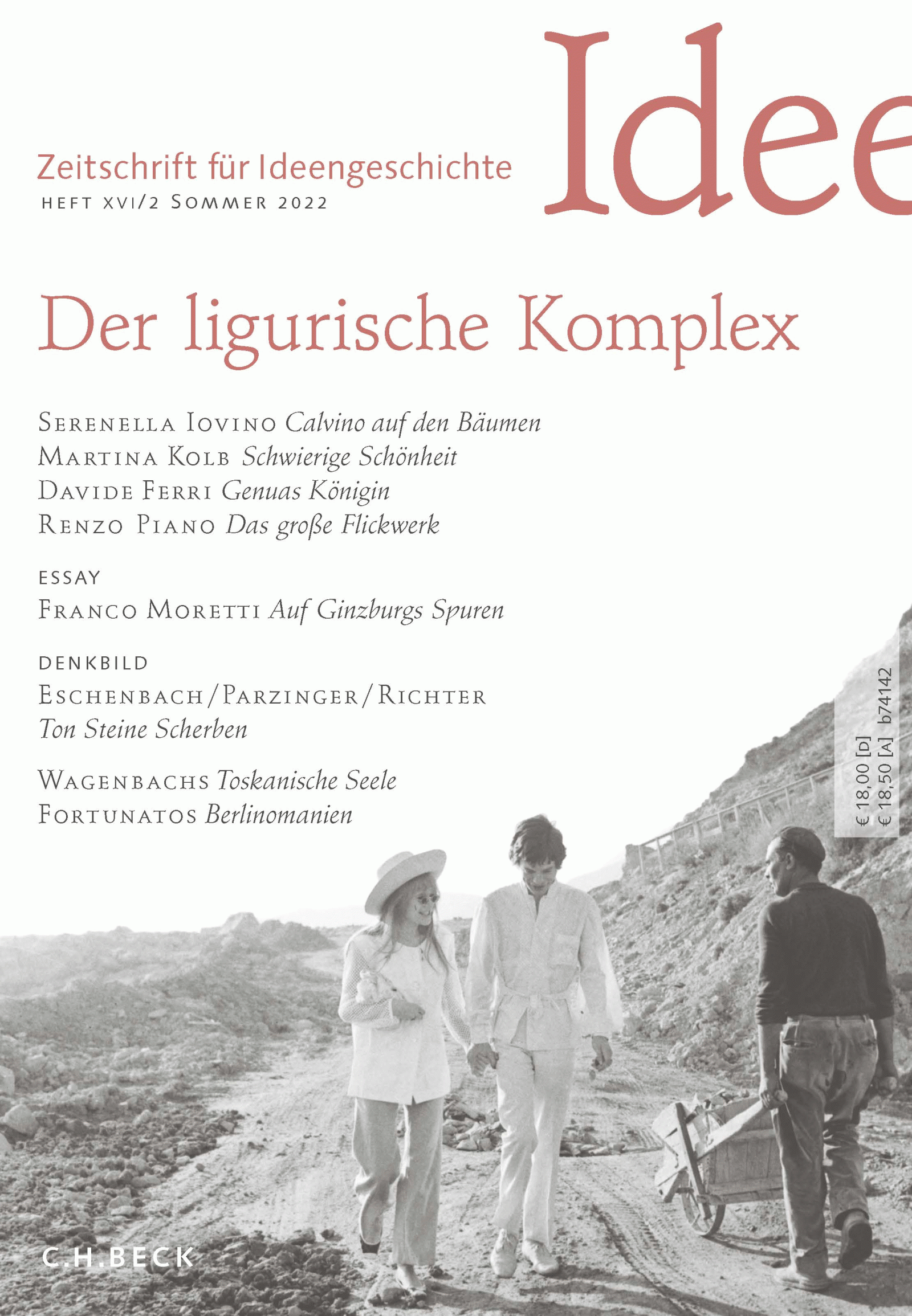Round table
Zeitschrift für Ideengeschichte.
A Journal

Roundtable in two parts with Stephan Schlak (Managing Editor, Zeitschrift für Ideengeschichte), Daniel Schönpflug (Editor "Konzept und Kritik") and Barbara Stollberg-Rilinger (Rector, Wissenschaftskolleg zu Berlin) together with the participants from the Kunsthistorisches Institut in Florenz Hannah Baader, Davide Ferri, Hana Gründler, and Gerhard Wolf
The Zeitschrift für Ideengeschichte (Journal for the History of Ideas) inquires into the mutable nature of ideas, be they philosophical, religious, political or of literary nature. In original contributions, experts from across the humanities trace the origins, metamorphoses, but also the aging of ideas. Doing that, some seemingly new ideas may turn out to be old hat; and, conversely, some ideas that have fallen into oblivion need to be rediscovered. As a forum for research and reflection, the journal strives for interdisciplinary exchange between all historically thinking and arguing humanities. While the journal's sources may lie in the archives, the present is its intellectual target. It threads paths of transmission between the past and the present time and it poses questions to the archive that concern us as persons living in the twenty-first century.
The current issue of the Zeitschrift für Ideengeschichte (XVI/2, Summer 2022) is dedicated to Der Ligurische Komplex (The Ligurian Complex), as Gottfried Benn (1886-1956) put it. He fantasized about it at his own desk – without ever having been in Liguria. For the editors of the issue, on the other hand, the “complex” means taking a very real look at infrastructure, geopolitics, social spaces, ecology, language, and images, facing up also to the catastrophic history of this region, giving space to the “complicated beauty” that Italo Calvino or Eugenio Montale have explored in literature or Fabrizio De André has sung about in Genoese dialect. Such a “complex” includes photographing, painting or writing poetry, building and gardening, perceiving and shaping landscape: Liguria, a fragile political entity and a transit space for centuries, with the steep coast of the Riviera di Levante and the ‘softer’ Riviera di Ponente with a hinterland of mountains and narrow valleys difficult to access. Liguria and the Riviera constitute – in an incessant “patchwork” between verticality and horizontal dimensions – their own aesthetics and practices between land and sea, which can expand or condense into fantasy spaces.
In its first part, the roundtable features the Zeitschrift für Ideengeschichte, since 2019 co-published by the Kunsthistorisches Institut in Florenz. The second part presents its current issue (Der ligurische Komplex, ed. by Hannah Baader and Gerhard Wolf, Summer 2022).
12 May 2022, 5:00pm
This event will take place in a hybrid format.
Venue
Palazzo Grifoni Budini Gattai
Via dei Servi 51
50122 Firenze, Italia
If you wish to attend in person (limited spaces), please contact KHI-Presse@khi.fi.it
To participate online please register in advance via Zoom:
https://zoom.us/meeting/register/tJcvdOisqjgjH9O_yiBbcW-3zn4tUWqf4mF0
After registering, you will receive a confirmation email containing information about joining the meeting.
Notice
This event will be documented photographically and/or recorded on video. Please let us know if you do not agree with the Kunsthistorisches Institut in Florenz using images in which you might be recognizable for event documentation and public relation purposes (e.g. social media).



